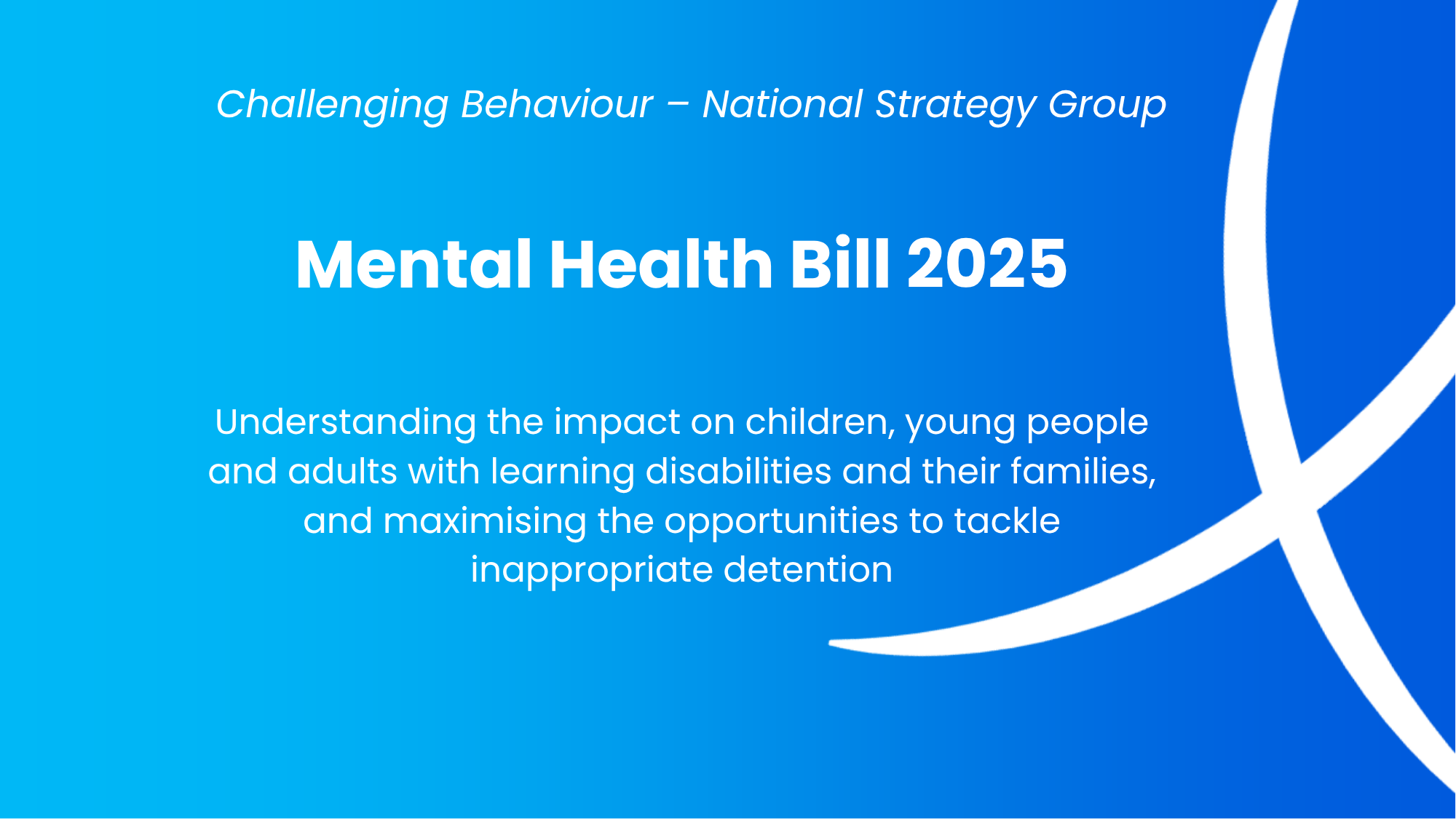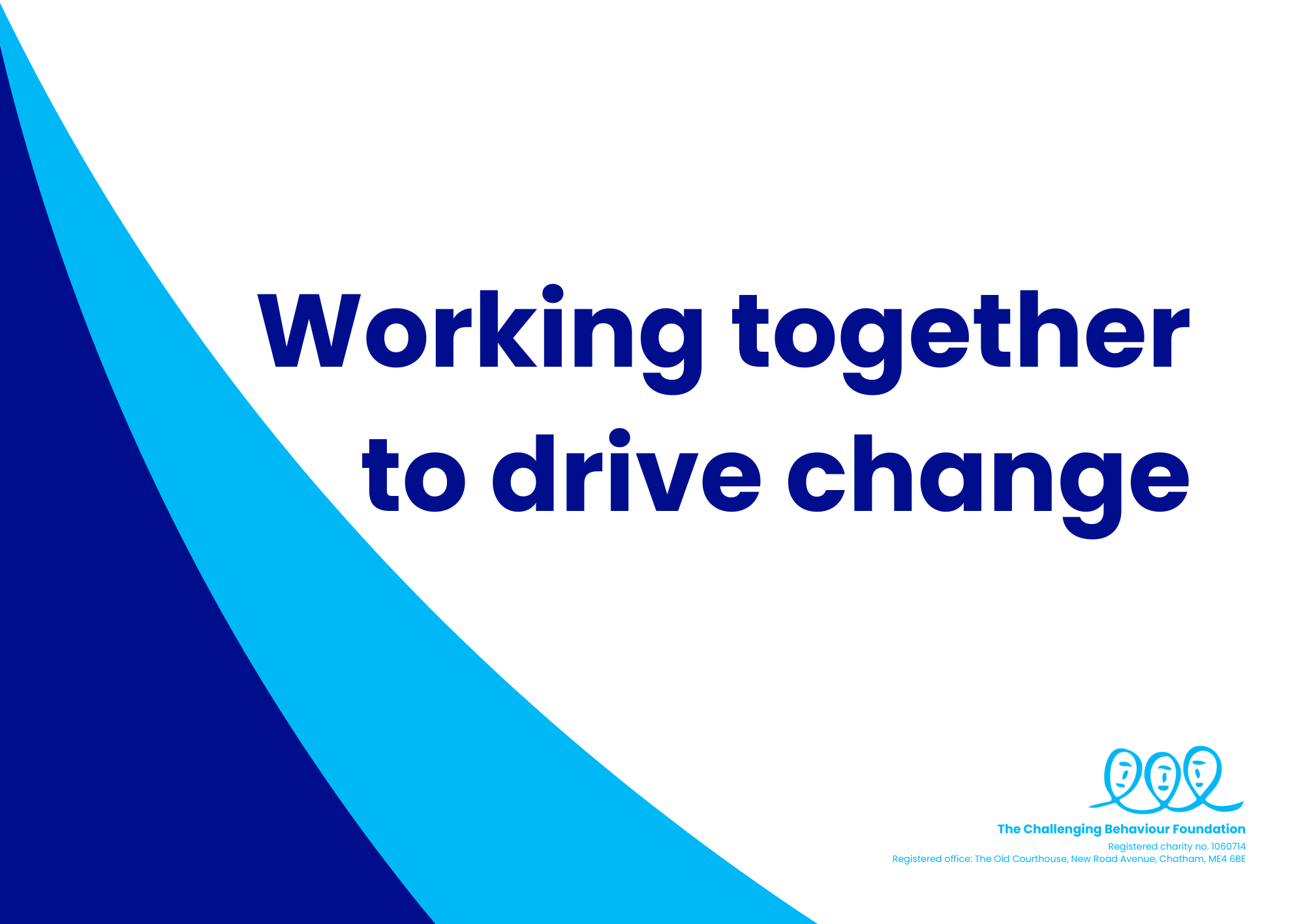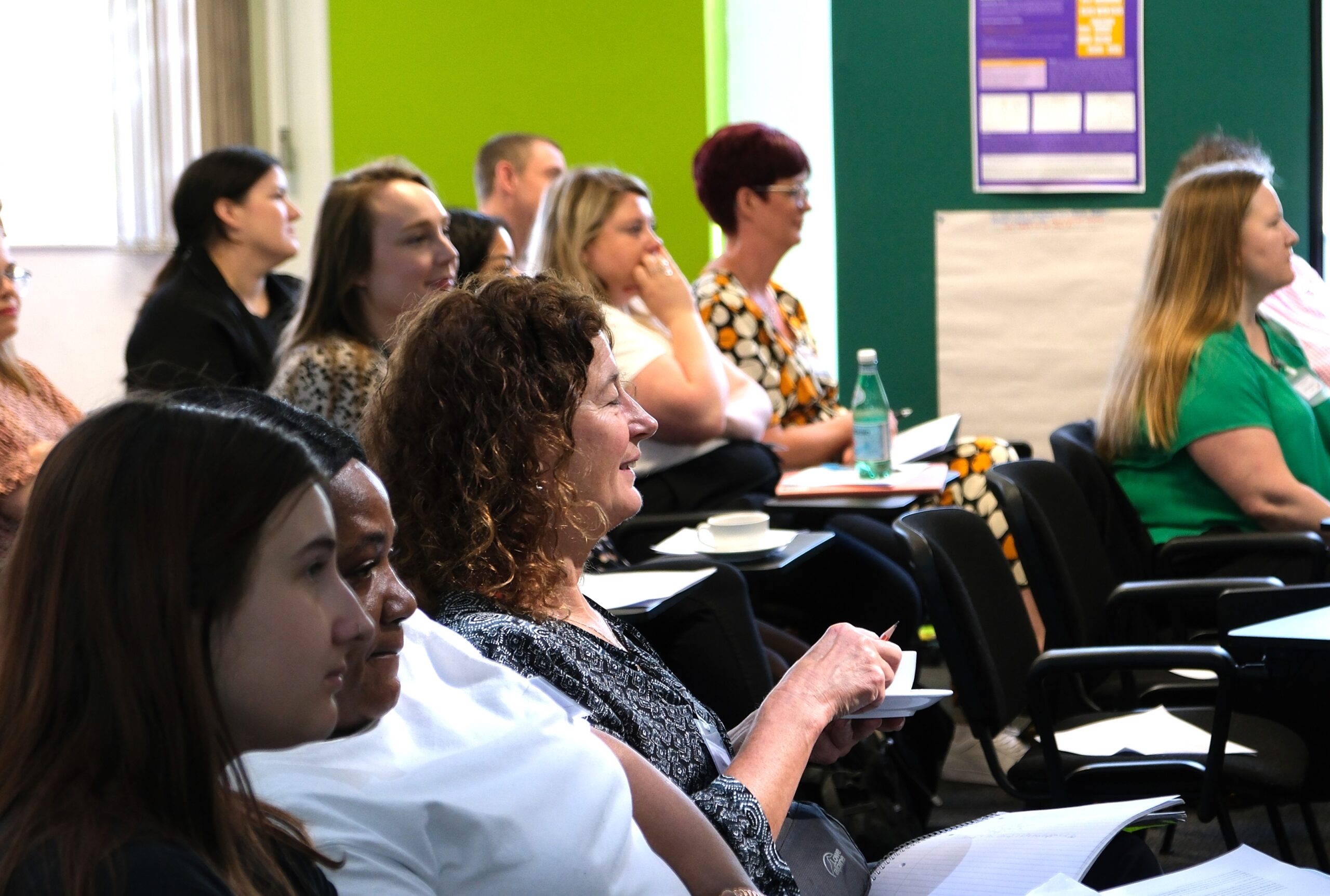
CB-NSG May 2025
This meeting focused on the Mental Health Bill and community support

Here we'll post details about the latest Challenging Behaviour - National Strategy Group (CB-NSG) meetings. Two meetings are held each year.
The CB-NSG holds two national meetings each year in which core members together discuss key issues and develop an action plan to take work forward.
The meetings are planned by the CB-NSG Steering Group who agree a focus and outcomes for each meeting based on current issues. The meetings provide the opportunity to discuss key issues, share good practice and agree actions to take work forward. The meetings include presentations, workshops and poster presentations. Progress of the actions agreed in the meetings are reviewed between meetings and updates are shared with the group.
The meetings are written up including outcomes, presentations, workshop discussions, poster presentations and action plans and can be found by clicking on the links at the bottom of this page.
For information on older meetings, please contact nationalstrategygroup@thecbf.org.uk
CB-NSG reception November 2024
When relevant, the CB-NSG may hold additional meetings on specific issues:
CB-NSG Mental Health Act consultation meeting March 2021

This meeting focused on the Mental Health Bill and community support

The CB-NSG held a reception in Westminster to raise awareness of the issues facing children, young people and adults with a learning disability and/or who are autistic

The theme of this meeting was "Cultures"